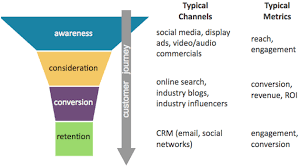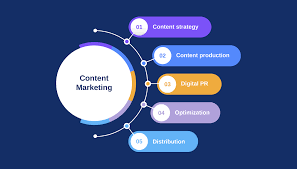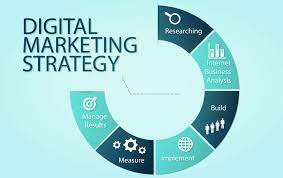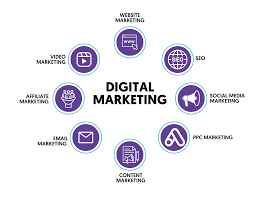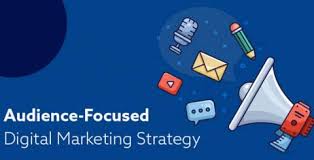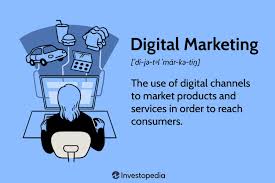The Power of Performance Marketing Agencies
Performance marketing agencies are transforming the way businesses reach and engage with their target audiences. Unlike traditional marketing approaches that focus on brand awareness, performance marketing is all about driving measurable results and ROI.
These agencies leverage data-driven strategies to deliver targeted campaigns that are designed to generate leads, increase conversions, and maximise revenue. By closely monitoring key performance indicators (KPIs) such as click-through rates, conversion rates, and cost per acquisition, performance marketing agencies can optimise campaigns in real-time to deliver the best possible outcomes.
One of the key advantages of working with a performance marketing agency is the ability to track and measure the success of your campaigns with precision. Through advanced analytics tools and technologies, these agencies provide valuable insights into consumer behaviour, allowing businesses to make informed decisions and refine their marketing strategies for maximum impact.
Furthermore, performance marketing agencies offer a high level of flexibility and scalability. Whether you are a small startup or a large enterprise, these agencies can tailor their services to suit your specific needs and budget. This personalised approach ensures that you get the most out of your marketing budget while achieving tangible results.
In today’s competitive digital landscape, having a strong online presence is essential for business success. Performance marketing agencies play a crucial role in helping businesses navigate this complex environment and stand out from the competition. By harnessing the power of data-driven insights and targeted campaigns, these agencies empower businesses to drive growth, build brand loyalty, and achieve long-term success.
8 Essential Tips for Success in a Performance Marketing Agency
- Understand your target audience thoroughly
- Set clear and measurable goals for each campaign
- Utilize data analytics to make informed decisions
- Stay updated on the latest trends in digital marketing
- Test and optimize your campaigns regularly
- Build strong relationships with clients and partners
- Focus on delivering results and ROI for clients
- Continuously improve your skills and knowledge in performance marketing
Understand your target audience thoroughly
To maximise the effectiveness of your performance marketing campaigns, it is crucial to thoroughly understand your target audience. By gaining insights into their preferences, behaviours, and needs, you can create tailored campaigns that resonate with them on a deeper level. Understanding your audience allows you to deliver relevant content and offers that are more likely to drive engagement and conversions. This targeted approach not only enhances the efficiency of your marketing efforts but also builds stronger connections with your audience, leading to long-term success for your business.
Set clear and measurable goals for each campaign
Setting clear and measurable goals for each campaign is a crucial tip when working with a performance marketing agency. By defining specific objectives such as lead generation, sales conversion, or website traffic increase, businesses can effectively track the success of their campaigns and evaluate the return on investment. Clear goals provide a roadmap for the agency to create targeted strategies that align with the desired outcomes, ensuring that every marketing effort is purposeful and results-driven. This approach not only enhances campaign performance but also allows for continuous improvement and optimisation based on measurable data and insights.
Utilize data analytics to make informed decisions
Utilising data analytics is a crucial tip for any business looking to maximise the effectiveness of their performance marketing efforts. By leveraging data-driven insights, businesses can make informed decisions that are based on real-time performance metrics and consumer behaviour patterns. This approach allows companies to identify trends, optimise campaigns, and allocate resources more effectively, ultimately leading to improved ROI and better overall results. In today’s digital age, data analytics has become an indispensable tool for driving success in the competitive landscape of performance marketing.
Stay updated on the latest trends in digital marketing
In the ever-evolving landscape of digital marketing, staying updated on the latest trends is crucial for any performance marketing agency aiming to deliver cutting-edge solutions. By keeping abreast of emerging technologies, consumer behaviour shifts, and new platforms, agencies can craft more effective and relevant campaigns for their clients. This proactive approach not only enhances the agency’s ability to optimise strategies in real-time but also ensures they remain competitive in a fast-paced industry. Embracing innovations such as artificial intelligence, data analytics, and personalisation techniques allows agencies to provide tailored experiences that resonate with target audiences, ultimately driving better results and maximising return on investment for their clients.
Test and optimize your campaigns regularly
Testing and optimising campaigns regularly is a fundamental tip for maximising the effectiveness of a performance marketing agency. By continuously monitoring and analysing campaign performance, businesses can identify what strategies are working well and where improvements can be made. This iterative process allows for adjustments to be made in real-time, ensuring that resources are allocated efficiently and that campaigns are delivering the desired results. Through testing and optimisation, businesses can fine-tune their marketing efforts to reach their target audience more effectively and ultimately drive better ROI.
Build strong relationships with clients and partners
Building strong relationships with clients and partners is a fundamental tip for success in the realm of performance marketing agencies. By fostering trust, open communication, and collaboration, agencies can create a supportive environment where ideas flourish and goals are achieved. Strong relationships not only lead to client satisfaction and loyalty but also pave the way for valuable partnerships that can enhance the agency’s capabilities and reach. Ultimately, investing in building strong relationships is key to long-term success and growth in the dynamic world of performance marketing.
Focus on delivering results and ROI for clients
When partnering with a performance marketing agency, it is crucial to prioritise delivering tangible results and a strong return on investment (ROI) for clients. By focusing on measurable outcomes and the impact of marketing efforts on key performance indicators, agencies can demonstrate their value and effectiveness in driving business growth. This client-centric approach not only builds trust and credibility but also ensures that every campaign is strategically aligned with the client’s objectives, ultimately leading to long-term success and mutual satisfaction.
Continuously improve your skills and knowledge in performance marketing
To excel in the dynamic world of performance marketing, it is essential to continually enhance your skills and expand your knowledge in this field. By staying up-to-date with the latest trends, tools, and strategies in performance marketing, you can adapt to changes quickly and deliver more effective campaigns. Investing in ongoing learning and skill development not only boosts your expertise but also enables you to innovate and drive better results for your clients or business. Embracing a mindset of continuous improvement in performance marketing ensures that you remain competitive and valuable in the ever-evolving digital landscape.



